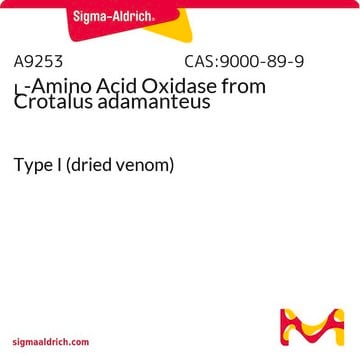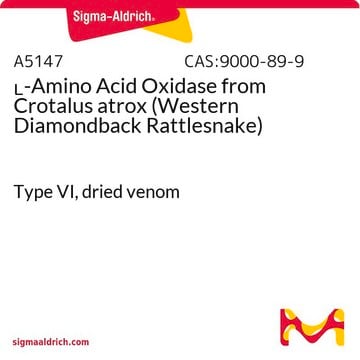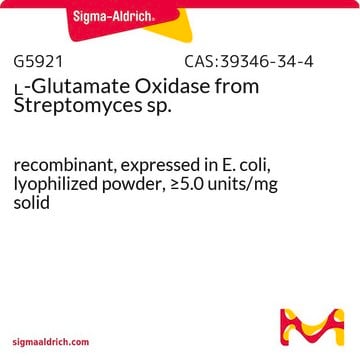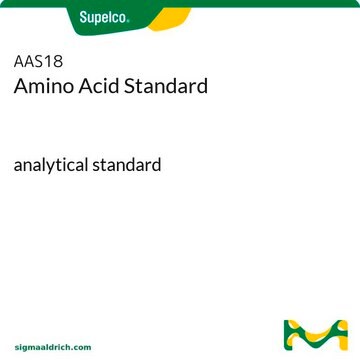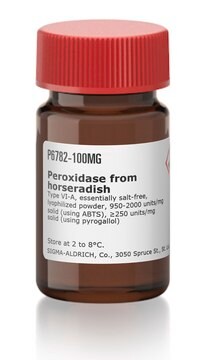A9378
L-Amino Acid Oxidase from Crotalus adamanteus
Type IV, ≥4.0 units/mg protein, aqueous suspension
Synonym(s):
L-AAO, L-Amino acid:oxygen oxidoreductase (deaminating)
About This Item
Recommended Products
type
Type IV
form
aqueous suspension
specific activity
≥4.0 units/mg protein
mol wt
~130 kDa
contains
toluene as preservative
concentration
≥5.0 mg/mL
solubility
H2O: soluble 1.0 mg/mL, clear
storage temp.
2-8°C
Application
Biochem/physiol Actions
Packaging
Unit Definition
Preparation Note
Signal Word
Danger
Hazard Statements
Precautionary Statements
Hazard Classifications
Acute Tox. 1 Inhalation - Acute Tox. 2 Dermal - Acute Tox. 2 Oral
Storage Class Code
6.1A - Combustible acute toxic Cat. 1 and 2 / very toxic hazardous materials
WGK
WGK 3
Flash Point(F)
Not applicable
Flash Point(C)
Not applicable
Personal Protective Equipment
Certificates of Analysis (COA)
Search for Certificates of Analysis (COA) by entering the products Lot/Batch Number. Lot and Batch Numbers can be found on a product’s label following the words ‘Lot’ or ‘Batch’.
Already Own This Product?
Find documentation for the products that you have recently purchased in the Document Library.
Our team of scientists has experience in all areas of research including Life Science, Material Science, Chemical Synthesis, Chromatography, Analytical and many others.
Contact Technical Service